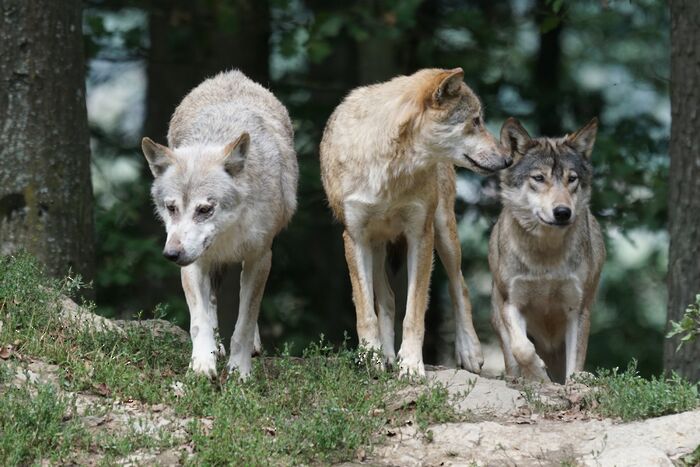Empty gestures are not enough. Our relationship with nature needs to change
“By reducing nature to a policy abstraction, we have warped it to conform to our own ‘civilised’ sensibilities”: Oliver Rhodes on effective environmentalism

When we see turtles waddling toward streetlights and falling into gutters, we get upset. When we see acres of rainforest ablaze, we get frustrated. When the world’s most powerful leader dismisses climate change as a fabrication, we get angry. Yet the difference between intention and action, which characterises environmentalism today, is nothing but a symptom of our wider indifference towards nature.
In an era of ever scarcer public resources, environmentalism becomes a concession which inconveniences taxpayers and threatens employment. Environmental protections were, for Trump, ‘job-killing regulations’. The Paris Climate Agreement created ‘draconian financial and economic burdens’ for the American people, which could not be reconciled. At home, the Green Party remains little more than a pressure group, failing to provide satisfactory answers to bread-and-butter politics: housing, jobs and economic capacity.
“I fear that we have lost sight of the original goal of environmentalism”
Since the days of the Tudors, the environment has been subject to an ideological occupation with order and cleanliness. This preoccupation informs the terms of environmental debate on both sides. Conservationists fence off woodland into nice little patches which resemble Tetris tiles more than forests. The European Union’s Common Agricultural Policy encapsulates how environmentalism has been sanitised in the public mind. ‘Pillar 2’ payments encourage the ‘protection’ of natural environments by subsidising farmers to ‘set aside’ land, but only for a limited area. More bizarrely, farmers are fined for allowing the growth of natural vegetation. Set aside land must be kept permanently barren, lest nature reclaims it from human control.
In his book, Feral: Rewilding the Land, Sea and Human Life, George Monbiot points out how misguided our relationship with nature has become. He emphasises that the problem is essentially cultural. As a society, we suffer from a sort of collective amnesia regarding what we consider to be ‘natural’. We consider sheep, for example, to be a staple of the British landscape, even though it is an alien species which has caused widespread environmental destruction. Britain was once rainforest, not the heath and scrubland we have normalised in upland Wales and Scotland. This amnesia influences official environmental policies. Nigel Miller, the then-vice-president of the National Farmers Union of Scotland, argued in 2008 that a decline in sheep farming would cause ‘irreparable damage’ to Scotland’s landscapes and biodiversity. This was despite the fact that heavy grazing is scientifically acknowledged to reduce soil quality.
“Our yearning for nature at an emotional level is clear enough”
By reducing nature to a policy abstraction, we have warped it to conform to our own ‘civilised’ sensibilities. We have packaged it up and presented it as an opportunity cost: a choice society must make at the expense of other choices. Furthermore, I fear that we have lost sight of the original goal of environmentalism: to restore nature to its natural state, without human supervision. For environmentalism to be taken truly seriously, we need a rethinking from the ground up of our social and cultural relationship with it. We need to shift the debate away from only a quantitative argument – as important as that is – toward a qualitative evaluation of the natural world.
Monbiot argues for the restoration of natural environments, without supervision, to large swathes of the landscape. He makes some conventional arguments for common land ownership, and for green tourism. But Monbiot does not dwell on these arguments. In fact, much of Feral is a story. He describes his experience stalking a deer, ‘spear poised above the water… flexed and focused as a heron’, and his travels through the Slovenian forests, ‘smooth pillars wrapped in elephant skin… like giant gardenias’. For a book about ecology, it seemed, at first, peculiar to introduce each chapter with a stanza of poetry. Sentiment does not belong in a science book.
Yet through sentiment Monbiot illuminates the importance of nature to our spiritual and emotional wellbeing. When he picks up the deer he has just shot, Monbiot captures the feeling: ‘I could not assimilate it because… I had been unaware of its existence. It was overwhelming, raw, feral. I did not have a place to put it.’
This is not mere daisy-chain-peddling. As far as I am aware, no one has linked environmentalism to trends of depression in urbanised environments. No one has linked it to increases in ADHD among children deprived of natural surroundings. Yet there is data to support both these links. No one has mobilised a movement for community land ownership, which would allow people to actively participate in their natural surroundings. Britain has the highest rate of private land ownership in Europe, and this only facilitates a greater detachment with nature. No one has linked environmentalism to the problems of mass consumerism, though consumerism is partly a manifestation of our natural instincts to forage, artificially channelled by modern society. No one, as far as I am aware, has successfully synthesised environmental arguments with broader issues. All these issues are impoverished because of it.
Our yearning for nature at an emotional level is clear enough. Countryfile attracts seven million viewers every Sunday. Chris Packham and David Attenborough have become household names. We must listen to these yearnings, for they reveal a dormant passion which can revitalise the debate if used effectively. We should not ignore economic arguments, for and against, environmental regulations. But we should take the debate further, and allow it to inform a more holistic, integrated discussion of how we can better interact with our natural world. Then perhaps it can become a friend, not an enemy, of human progress
 News / Hundreds of Cambridge academics demand vote on fate of vet course20 February 2026
News / Hundreds of Cambridge academics demand vote on fate of vet course20 February 2026 News / University Council rescinds University Centre membership20 February 2026
News / University Council rescinds University Centre membership20 February 2026 News / Judge Business School advisor resigns over Epstein and Andrew links18 February 2026
News / Judge Business School advisor resigns over Epstein and Andrew links18 February 2026 News / Petition demands University reverse decision on vegan menu20 February 2026
News / Petition demands University reverse decision on vegan menu20 February 2026 News / Caius students fail to pass Pride flag proposal20 February 2026
News / Caius students fail to pass Pride flag proposal20 February 2026










